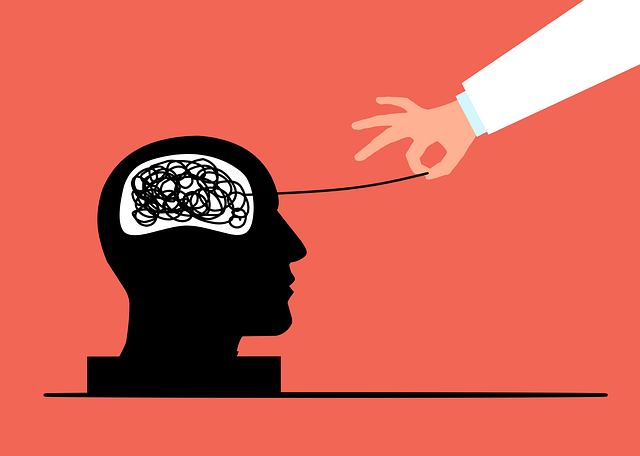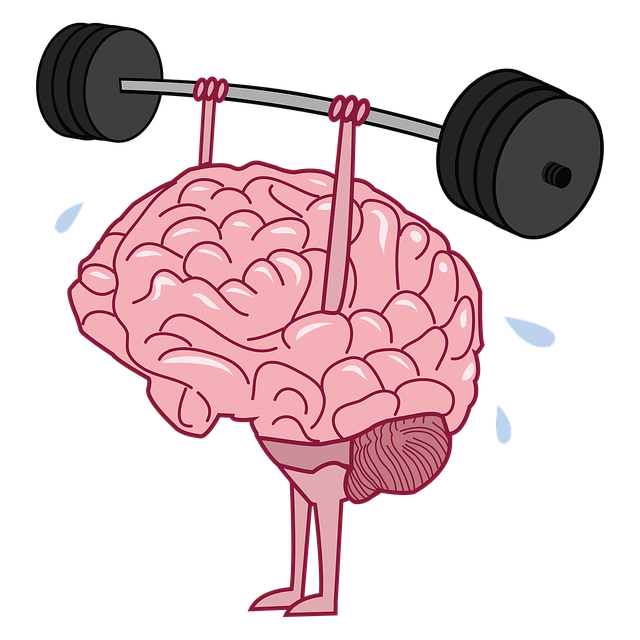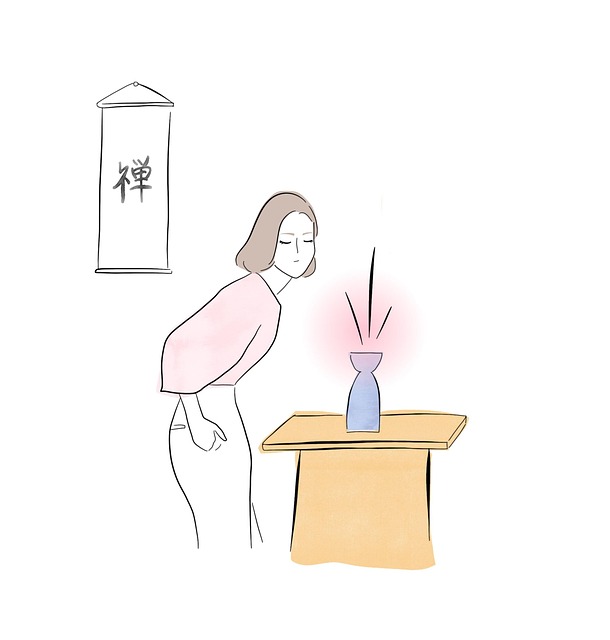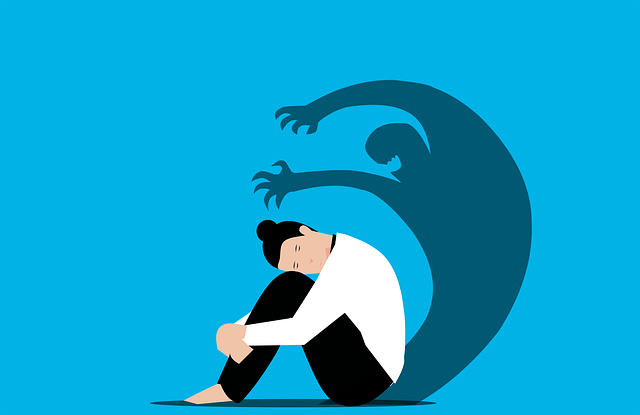Mindfulness meditation, popularized by Boulder Children Therapy, offers children playful tools for developing self-awareness and emotional regulation skills. Through techniques like breath counting and guided visualizations, kids learn to stay present and manage stress effectively. This benefits both their well-being and that of healthcare providers working with them, enhancing mental wellness coaching programs. Regular practice fosters positive thinking, builds resilience, and aids in navigating challenges. Incorporating mindfulness into daily routines creates a peaceful sanctuary, promoting calmness and emotional intelligence. Simple techniques like focusing on the breath or body scanning are accessible and beneficial for calming minds and connecting with one's physical self. For professionals, integrating mindfulness improves focus and enhances support for clients, while modeling healthy stress management for children can prevent burnout in both generations.
“Unwind and explore the transformative power of mindfulness meditation with Boulder Children’s Therapy. This comprehensive guide offers valuable insights for parents and educators, empowering them to support children’s mental well-being through this ancient practice. From understanding the basics of mindfulness for kids to discovering its profound benefits, we navigate the journey of integrating meditation into daily routines. Learn simple techniques and create calming spaces to cultivate present-moment awareness in young minds.”
- Understanding Mindfulness Meditation for Kids
- Benefits of Regular Practice for Young Minds
- Creating a Calming Space for Meditation
- Simple Techniques and Exercises for Beginners
- Incorporating Mindfulness into Daily Routines
Understanding Mindfulness Meditation for Kids

Mindfulness meditation is a valuable tool for children to develop self-awareness and emotional regulation skills. Often practiced as part of Boulder Children Therapy, this form of meditation helps kids cultivate a present-moment awareness, enabling them to better manage stress and emotions. Unlike adult meditations that might focus on deep breathing or quiet contemplation, mindfulness sessions for children often incorporate playful elements like counting breaths, guided visualizations, or simple body scans to make the practice engaging and enjoyable.
These practices can be particularly beneficial in preventing burnout among healthcare providers who work with children. By incorporating mindfulness into their daily routines, both therapists and parents can enhance their own mental wellness coaching programs development. The positive thinking fostered by these techniques contributes to improved resilience, allowing individuals to better navigate challenging situations while maintaining a balanced perspective—a crucial aspect of burnout prevention strategies for healthcare providers working in demanding fields.
Benefits of Regular Practice for Young Minds

Regular mindfulness meditation practice offers a wealth of benefits for young minds, fostering an environment conducive to healthy emotional development and overall well-being. For children, particularly those seeking support through Boulder Children Therapy, this ancient technique can serve as a powerful tool. By engaging in self-awareness exercises, kids learn to recognize and manage their emotions more effectively, leading to better emotional healing processes. This enhanced emotional intelligence equips them with essential skills to navigate social interactions and handle stressors, thereby reducing anxiety levels and improving their ability to focus and concentrate.
Beyond emotional benefits, mindfulness meditation aids in stress management, a pressing concern for many young individuals today. Incorporating these practices into daily routines allows children to develop a deeper sense of calm and resilience, enabling them to cope with challenges more constructively. As they learn to stay present and non-judgmental, kids gain insights into their thoughts and feelings, fostering self-acceptance and promoting positive mental health habits that can last a lifetime.
Creating a Calming Space for Meditation

Creating a peaceful sanctuary for your meditation practice can significantly enhance your experience and benefits. Whether you’re a seasoned meditator or just starting, having a dedicated space that fosters calmness is essential. This could be a quiet corner in your home, a cozy room, or even a small area tailored specifically for relaxation. At Boulder Children Therapy, we emphasize the importance of cultivating mental wellness through various practices, including mindfulness meditation.
When designing this calming space, consider incorporating elements that nurture emotional intelligence and cultural competency. Soft lighting, soothing scents, and comfortable seating can all contribute to creating an environment where you feel at ease. Imagine a place where you can unwind, quiet your mind, and connect with yourself—a personal retreat that supports your overall healthcare provider cultural competency training and emotional well-being.
Simple Techniques and Exercises for Beginners

For beginners looking to explore mindfulness meditation, there are simple techniques and exercises that can make this practice more accessible. One of the most fundamental practices is focusing on the breath. Close your eyes and gently pay attention to the sensation of air flowing in and out of your nose or the rise and fall of your abdomen. This simple act of awareness can help calm the mind and reduce stress, a benefit often sought by parents looking for Boulder Children Therapy solutions.
Another easy exercise is body scanning. Lie down, close your eyes, and gently bring your attention to each part of your body starting from your toes and moving up to the top of your head. Notice any sensations, tension, or discomfort without judgment. This technique fosters a deeper connection with your physical self and enhances coping skills development. By incorporating these simple mindfulness practices into their daily routines, parents can also model healthy stress management for their children, potentially contributing to the prevention of burnout in both generations.
Incorporating Mindfulness into Daily Routines

Incorporating mindfulness into daily routines can be a transformative practice for individuals seeking to enhance their mental well-being. At Boulder Children Therapy, we emphasize the power of mindfulness as a tool for cultivating emotional intelligence and emotional regulation. Starting your day with a brief mindfulness exercise, such as deep breathing or a guided meditation, can set a calming tone and improve focus throughout the day. Even just 10 minutes dedicated to this practice can make a significant difference in managing stress levels.
Mindfulness isn’t about achieving a specific state of calm; rather, it’s about cultivating present-moment awareness and observing thoughts and emotions without judgment. This simple shift in perspective can help individuals navigate challenges more effectively. For mental health professionals conducting risk assessments, integrating mindfulness into daily routines can also foster resilience and emotional regulation, enabling better support for clients engaged in therapy or counseling services.
Mindfulness meditation offers Boulder Children Therapy a powerful tool to support young minds in developing emotional intelligence and resilience. By integrating simple practices into daily routines, parents and caregivers can create a sense of calm and enhance their children’s overall well-being. With regular engagement in mindfulness, kids can better navigate challenges, improve focus, and cultivate a deeper appreciation for the present moment—skills that will serve them throughout their lives.











